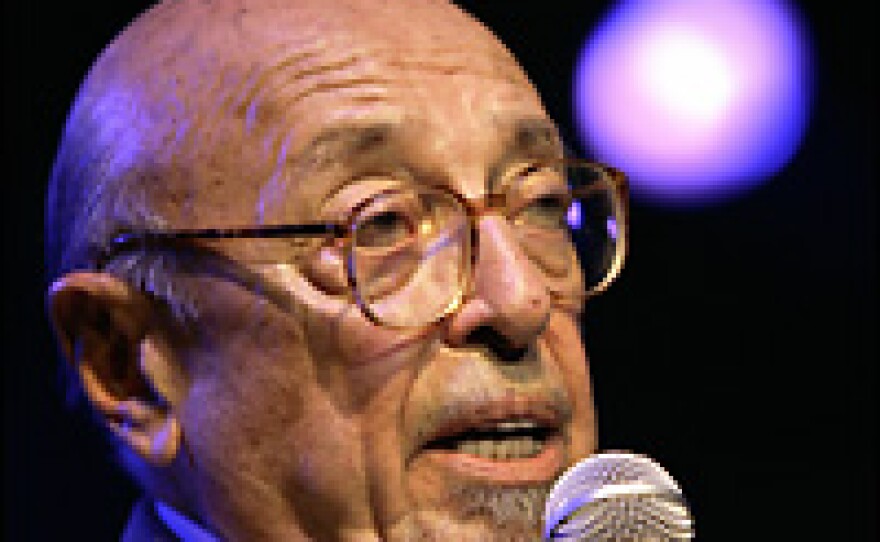
In the music business, people with an acute ability to sense something in music that others do not are said to have great "ears." Ahmet Ertegun, who died Wednesday at 83, had some of the best ears in the business.
Ertegun was the founder of Atlantic Records and a music industry pioneer. He had been in a coma since a fall at a Rolling Stones concert in New York in late October.
The son of a Turkish diplomat, Ertegun fell in love with jazz in London after seeing Duke Ellington's band in 1932. Inspired, the young Ertegun eventually staged concerts at the Turkish embassy in Washington. Black and white musicians were able to play together at the shows, something they couldn't do beyond the embassy gates.
Presented with a choice of either following his father's diplomatic footsteps or pursuing music, Ertegun borrowed $10,000 from a family dentist in 1947 and started his own record label.
The business plan was simple, he once told PBS's Charlie Rose: supply music to an audience the major record labels were ignoring.
In pursuing black artists and the black audience, Ertegun and Atlantic helped what the industry called "race records" find a larger audience as rhythm and blues, with acts like Ruth Brown, the Drifters and a young blind pianist living in Seattle named Ray Charles.
"When I first heard Ray Charles, he was a flop artist on a small label in California," Ertegun said on NPR's Morning Edition in 2005. "He hadn't sold any records. And I bought his contract for $2,500."
By 1959, Charles had topped the charts with "What'd I Say," and a major label, ABC-Paramount, came calling with a deal he could not refuse.
Ertegun never stopped finding new talent. He put together an extraordinary hit-making production team that included engineer Tom Dowd and producer Jerry Wexler, who was also a partner in Atlantic. Together they helped turn hidden talents into stars. Among their successes was Aretha Franklin, a young church-trained singer who became the queen of soul.
But Atlantic's successes would have been short-lived if Ertegun had not recognized the potential of the new sound of the late 1960s: rock 'n' roll.
Ertegun and Atlantic moved effortlessly into the rock era, signing Cream, Led Zeppelin and Crosby, Stills, Nash and Young, among many others.
Atlantic also found success as a leading independent jazz label, with artists such as Charles Mingus, John Coltrane and Ornette Coleman.
Ertegun always attributed his successes to his love for jazz and blues, and to the musicians who made the music.
Rolling Stone magazine founder Jann Wenner says that the music captivated Ertegun and he, in turn, was devoted to the music.
"Everybody knew he was the best music guy," Wenner said.
Copyright 2022 NPR. To see more, visit https://www.npr.org. 9(MDAzMjM2NDYzMDEyMzc1Njk5NjAxNzY3OQ001))






